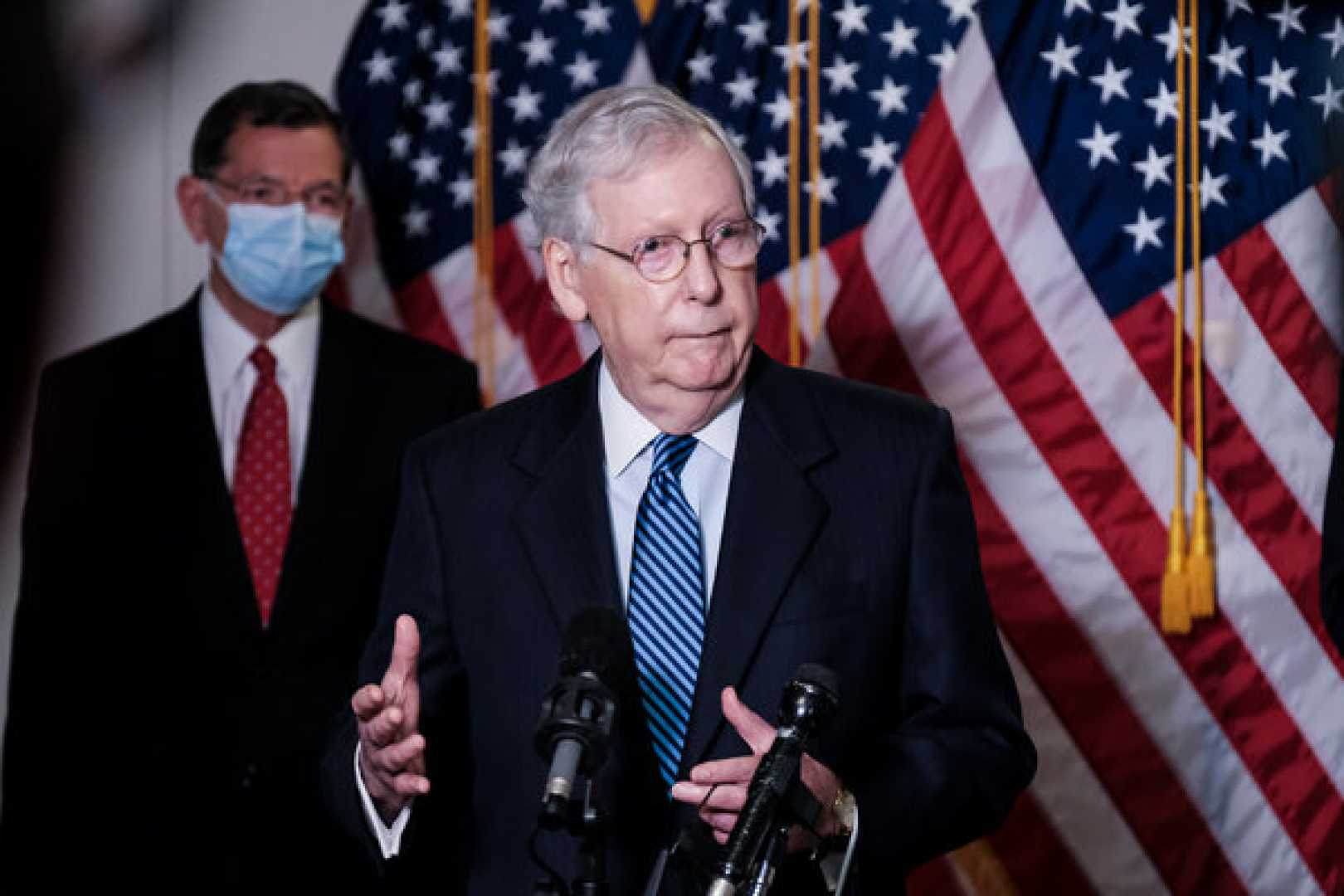Politics
McConnell’s Judicial Legacy: Shaping Courts for Generations

WASHINGTON, D.C. — Mitch McConnell, the longest-serving Senate leader in U.S. history, stepped down at the end of the last Congressional term, leaving behind a legacy that extends far beyond the halls of the Capitol. Under his leadership, the Senate confirmed three Supreme Court justices and over 200 lower-court judges, reshaping the judiciary with a conservative tilt that will influence American law for decades.
In a recent interview with 60 Minutes correspondent Lesley Stahl, McConnell emphasized the lasting impact of his judicial strategy. “It’s a lifetime appointment,” McConnell said. “The normal legislative activities we involve in, they take over, taxes go up. We take over, taxes go down. In other words, it’s very hard to get any kind of lasting impact. I felt that the way to get lasting impact is to put the right kind of men and women on the courts who hopefully will be there for a while.”
McConnell’s approach was not without controversy. When Justice Antonin Scalia died in February 2016, then-President Barack Obama nominated Merrick Garland to fill the seat. McConnell, however, led Senate Republicans in refusing to hold a hearing, arguing it was too close to the November election. Yet, when Justice Ruth Bader Ginsburg died just six weeks before the 2020 election, McConnell swiftly pushed through President Donald Trump‘s nominee, Amy Coney Barrett.
McConnell justified his actions by citing a 1992 speech by then-Senator Joe Biden, who suggested that Supreme Court nominations should be deferred during an election year. “There’s nothing unconstitutional about it. It doesn’t break any rules,” McConnell told Stahl. “The majority decides whether to vote or not. And that’s why in 2020 we were in the majority. The president was of our party. The vacancy occurred, and we filled it.”
Author Michael Tackett, in his biography of McConnell, described the blockade of Garland as “brutish” and an impulsive exercise of power. “This was the sheer exercise of power,” Tackett said. “That was a total concoction to give the gloss of authority for what he wanted to do.”
Lawrence Friedman, a professor of privacy and constitutional law at New England Law, argued that McConnell’s actions undermined the spirit of Article II of the Constitution, which grants the president the power to nominate judges with the Senate’s advice and consent.
McConnell’s influence on the judiciary has had significant consequences. Recent Supreme Court decisions, such as the overturning of Roe v. Wade and the rejection of the Chevron deference in Loper Bright v. Raimondo, reflect the conservative supermajority he helped create. “This new Supreme Court reversed that,” McConnell said. “And that’s a message to Congress, that if you want us to do something, you better spell it out.”
As McConnell steps down, his legacy remains a subject of intense debate. His strategic focus on the judiciary has left an indelible mark on the American legal system, ensuring that his influence will be felt for generations to come.












